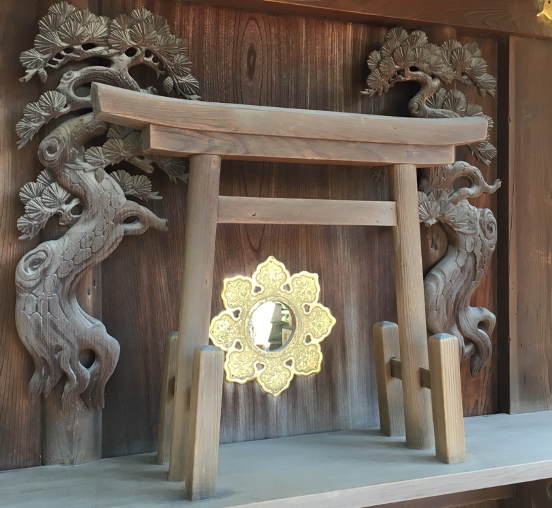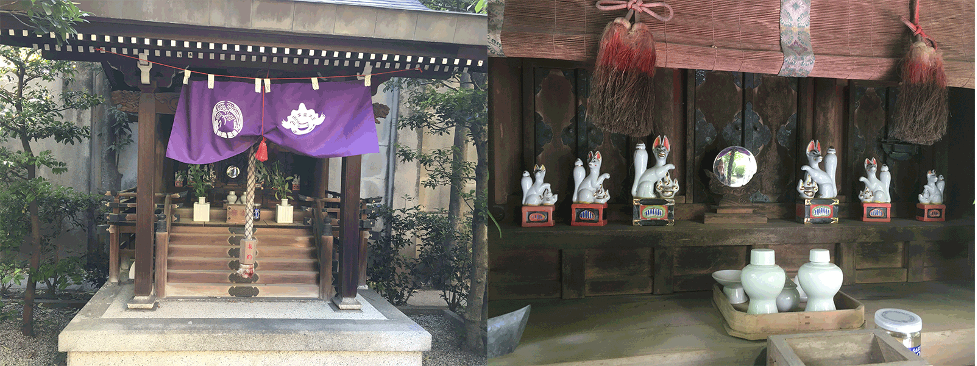Self-remembering is awareness of the presence of God. – Rodney Collin
This may be a surprising statement for some people that are involved in the Fourth Way. Some feel that the power of Fourth Way is that it stays away from religion and focuses on the psychological and spiritual aspects of awakening. One reason that people who became disappointed with religion grow interested in the Fourth Way is exactly because that the Fourth Way seems to stay away from religion.
I went to a Catholic elementary school, had Bible class once a week, and went to church every Sunday. At the age of ten, I decided that the Catholic religion was not for me. Although I couldn’t skip Bible classes, I decided I wouldn’t go to church anymore. Now, understanding that all religions have the same inner meaning, I can see that the Bible stories have an inner, psychological meaning.
Psychological and Inner Meanings of Teachings
Ouspensky mentions in The Psychology of Man’s Possible Evolution, “There is no doubt that almost every known religion developed one or another kind of psychological teaching connected often with a certain practice, so that the study of religion very often included in itself the study of psychology.” In Christianity, it is the Philokalia, while in Islam, it is Sufism; in Hinduism, it is the Upanishads; in Taoism it is Taoist alchemy; and in Buddhism it is Zen Buddhism that includes the study of psychology. The concept of remembering God is a very common theme in the Philokalia, as it is in Sufi texts.
Establishing the Inner Man
When you establish yourself in the inner man by the remembrance of God, then the Lord will enter and dwell within you. – Theophan the Recluse
Remembering oneself and remembering the presence of God are the same thing, when speaking about the state of self-remembering rather than the effort. The effort to remember oneself starts with the steward. The steward, or mind ruler, is part of the lower self. The steward ‘awakens’ and starts the effort of self-remembering by dividing one’s attention. This does not create a drastic change in one’s experience of ‘I’.
From an objective point of view, however, a significant change has taken place. A moment earlier, one was in a state of waking sleep, without self-awareness, but now one is aware of this. In addition, one has started the effort of self-awareness and one tries to stay aware of oneself. The lower self, however, does not experience this as a deep change and therefore does not value this effort. On the contrary, it often feels that the activity of the steward to start self-awareness interrupts its own activities. Therefore it will try to get rid of this interruption. If, despite this resistance, one is able to sustain self-remembering, one’s Real I may awaken.
Like the ocean is your god-self. Even like the sun is your god-self. But your god-self does not dwell alone in your being. Much in you is still man, and much in you is not yet man, but a shapeless pigmy that walks asleep in the mist searching for its own awakening. – Kahlil Gibran.
Awakening of Real I
The awakening of Real I is such a drastic change that it has a profound effect on the lower centers. The deepness of the state may flood the lower centers with emotions of gratitude and love for the experience of grace.
At other times, one experiences a more neutral state without strong emotions. Regardless of how the lower self may experience the presence of the higher self, what is common is a transformation of one’s experience of ‘I’. When the higher self awakens and is present, one’s experience of ‘I’ shifts from the lower to the higher self. At those times, one no longer feels the lower self as ‘I’; it has become an interesting stranger.
This is quite a miraculous experience. Even though the state may have only lasted for some seconds, it may reverberate inside for days or weeks. People with no knowledge of the higher self may, due to some accidental shock, have a deep experience it. Lacking an understanding of the experience can create a deep fear and, in extreme cases, may cause a person to go mad. Experiencing the miracle of the presence of the higher self, the lower self may take the higher self for itself, and think itself a god.
There is only one thing to be gained in life, and that is to remember God with each breath; and there is only one loss in life, and that is the breath drawn without the remembrance of God. – Madani (Indian Sufi)
The Sacred Mirror of Shinto Shrines
Sacred spaces in Buddhist temples contain a Buddhist statue, a symbol of the higher self, or a Bodhisattva statue that represents the steward. In contrast, the sacred space in Japanese Shinto shrines usually contains a mirror. The traditional interpretation of the mirror is that it represents the object through which the Shinto Sun goddess Amaterasu may manifest in this world.
The inner meaning of the mirror is that it symbolizes the effort of looking within. When the mirror is clean of dust–when the many I’s no longer interrupt the effort–the mirror can reflect one’s true identity. Mirror is ‘kagami’「鏡」in Japanese. When one takes out the ‘ga’, which is the sound of the character「我」 meaning ‘I’, ‘ego’ or ‘selfish’, from the word ‘kagami’, the word ‘kami’「神」comes, which means ‘God.’
Step aside Hafiz, you are blocking the way. – Hafiz

Walther Sell has been a student of the Fourth Way for decades. He is the author of a website on Oriental esoteric teachings, Inner Journey to the West. See other articles by Walther for the FourthWayToday.org: Walter Sell articles.
